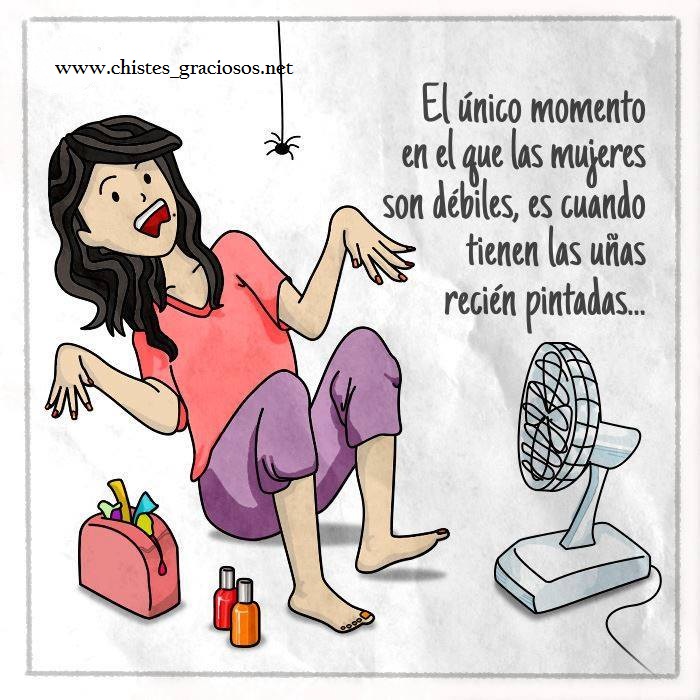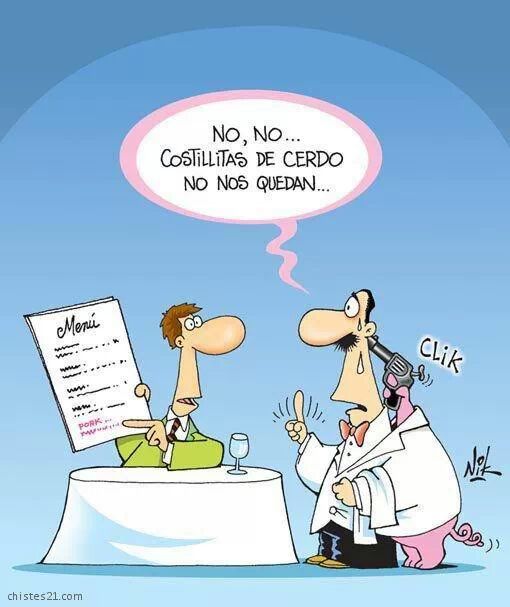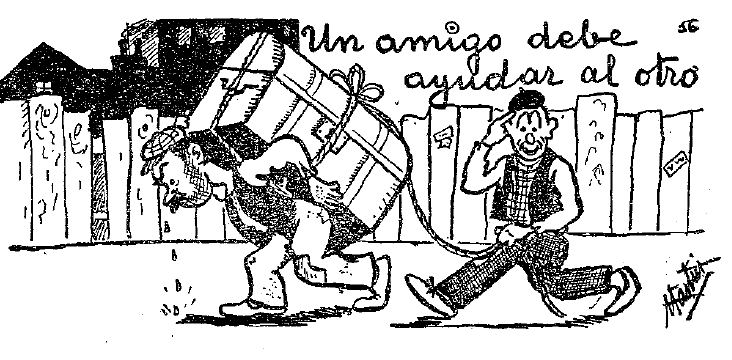
| Языки :: Испанский |
| Аудио |

 |
|
 |
|
105 |
Español |
Spanish |
|
Lección Treinta y seis (36) |
||
| Unos chistes | A few jokes. | |
| 1 |
(Mientras nuestro amigo está dando una vuelta por
Madrid, vamos a leer unos chistes en los periódicos (1).) |
While our friend is taking [giving] a walk, through [by] M., let's [go to] read a few jokes in the papers. |
| 2 | Paciencia. - Hace diez minutos que estoy delante de esta ventanilla. | Patience. - I have been 10 minutes before that ticket-window [it makes 10 m. that I am...]! |
| 3 | ¡Y yo, hace treinta años que estoy detrás de ella (2) ! | And I have been behind it for 30 years! |
| 4 |
Buscando un cuarto. |
Looking for an apartment. This house has the disadvantage [of] that the neighbours (can) see by this window all that goes on [is done] inside. |
| 5 | Bien, señora; se tapará la ventana (3). | Well, madam, (we) shall wall up the window. |
| 6 | Y entonces, ¿cómo haré yo (4) para ver lo que hacen los vecinos? | Well then, how shall I do to see what the neighbours do? |
| 7 | El buen amigo. - ¿Me presta cinco duros? - No. | The good friend. You lend me 5 douros ? - No. |
| 8 | Haces mal; un buen amigo debe ayudar al otro (5). | You're wrong [do ill] ; a good friend must help [at] (an)other. |
| 9 | Sí; pero tú siempre quieres ser el otro. | Yes, but you always want to be the other. |
| EJERCICIOS | EXERCISE : | |
| 1 |
Mientras usted estaba durmiendo, yo he dado una vuelta por la ciudad. |
While you were sleeping I took [gave] a stroll through [by] the town. |
| 2 | ¿Por dónde ha estado usted? | [By] where have you been? |
| 3 | En el barrio viejo, detrás de la catedral. | In the old(er) district, behind the cathedral. |
| 4 | Yo lo vi ayer, tiene pocas cosas interesantes |
I saw it yesterday; |
| 5 | A mí me han gustado sus tiendas
pintorescas, sus calles estrechas... |
To me its picturesque shops have appealed, its narrow streets... |
| 6 | ¿Y el olor a aceite frito? | And the smell of [at] fried oil? |
| 7 | ¿Por qué no? No me disgusta el aceite. | Why not? Oil does not displease me. |
| 8 | A mí me marea; en mi país se usa sólo mantequilla. | It sickens [at] me; in my country, butter only is used. |
| NOTES. | |
| 1 |
Mientras means while, but not during,
which is durante. |
| 2 | In detrás de : behind, note the cognation with retraso, delay. |
| 3 |
La ventana : the window; la ventanilla : the
ticket window, or, in a railway-carriage, or a motor-car, the door or window-pane; it is the dimin. of ventana. - Tapar is not: to tap, but to cover, stop up. |
| 4 |
Hacer : to do; yo haré, I shall do; a
redoubtable irreg. verb, that we shall master only with the help of
time. However, the forms : ¿ Qué hace usted?, ¿Qué hacen los vecinos?, What do you do?. What do the neighbours do? are regular, as is (sent. 8) : haces, you do. |
| 5 |
Ayudar (pr. : ayoodarr). - Un duro : a 5 peseta coin. |
|
Disgustar : to displease, contrary of gustar. |
|
|
In order to better assimilate, practice on the examples of
less. 35, with : |
